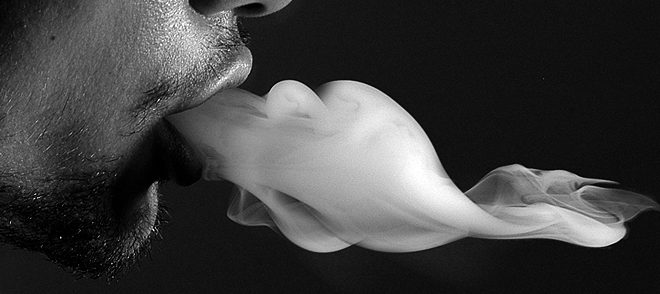Sleep disturbances are highly common, particularly among individuals with anxiety symptoms or disorders. In fact, sleep disturbances and anxiety influence each other: sleep problems can serve as a risk factor for the development of anxiety disorders and, conversely, anxiety disorders can contribute to problematic sleep. Anxiety sensitivity, the fear of anxiety-related bodily sensations, is a risk factor that might explain the link between anxiety and sleep. Individuals with higher levels of anxiety sensitivity tend to focus on bodily sensations, which can heighten worry about these sensations. When an individual is trying to go to sleep, there are fewer things to distract from attention to bodily sensations, which may contribute to difficulty falling or staying asleep.
Cigarette smoking is an additional factor that contributes to the link between anxiety and sleep disturbance. Nicotine increases arousal and bodily sensations, and these changes can be experienced frequently throughout the day as levels of nicotine fluctuate with each cigarette smoked. The absence of smoking at nighttime and overnight can contribute to nicotine withdrawal, which can cause symptoms like anxiety, restlessness, and difficulty concentrating, and can interfere with sleep. More frequent smoking can contribute to sleep onset difficulty, which may be especially true for individuals with elevated anxiety sensitivity who tend to focus on bodily sensations while attempting to initiate sleep.
To evaluate these proposed associations, we tested the association between anxiety sensitivity and daily smoking (i.e., number of cigarettes smoked per day) in terms of self-reported sleep problems among 190 adult daily smokers. Results indicated that anxiety sensitivity was significantly positively correlated with problems due to subjective sleep quality, sleep onset latency, sleep medication use, sleep disturbance, and daytime dysfunction. Specific to sleep onset latency, results indicated that for every 1-point increase in anxiety sensitivity (measured by the Anxiety Sensitivity Index-3), there was a 1.86 minute increase in sleep onset. Moreover, the association between anxiety sensitivity and delayed sleep onset was significant only for those individuals who were heavy smokers – those who smoked 33 or more cigarettes per day. These associations were significant after adjusting for other relevant factors, like age, sex, and negative affect.
Overall, the findings from this study indicate that anxiety sensitivity is associated with subjective aspects of sleep, primarily delayed sleep onset. In particular, heavier smokers (relative to lighter) with elevated anxiety sensitivity may be at high risk for difficulties falling asleep, potentially due to heightened awareness to nicotine-related bodily arousal and sensations when attempting to fall asleep. Future work in this area should include objective indices of sleep disturbance, and also evaluate the associations between anxiety sensitivity, smoking, and sleep problems over time. Given that anxiety sensitivity can be reduced through cognitive-behavioral interventions, including brief interventions requiring minimal therapist involvement, it may be advantageous for anxiety sensitivity interventions to address fearful interpretations and responses to bodily sensations related to sleep, which could have promising effects for anxiety management.
Read the full paper: Farris, S. G., Matsko, S. V., Uebelacker, L., Brown, R. A., Price, L. H., & Abrantes, A. M. (in press). Anxiety sensitivity and sleep disturbances in treatment-seeking smokers. Cognitive Behaviour Therapy.
photo by: Boby

 Cognitive Behaviour Therapy A peer reviewed, multidisciplinary journal devoted to the application of behavioural and cognitive sciences to clinical psychology and psychotherapy.
Cognitive Behaviour Therapy A peer reviewed, multidisciplinary journal devoted to the application of behavioural and cognitive sciences to clinical psychology and psychotherapy.


